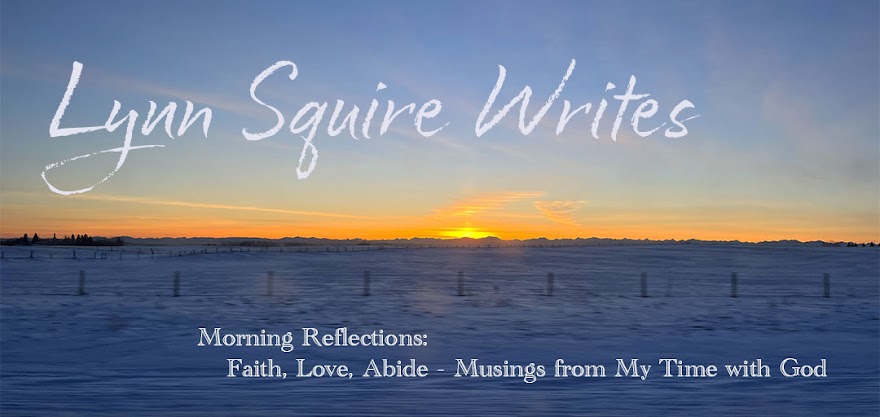“Fear ye not, neither be afraid: have not I told thee from that time, and have declared it? ye are even my witnesses. Is there a God beside me? yea there is no God; I know not any.” Isaiah 44:8
When going through some old writing I did over a decade ago, I discovered the upsets and insecurities about the future we face today, we also faced back then. The details may be different, but the theme and the characters are the same.
Almost every year, I read through the Bible. In general, the reading at the beginning of the year starts at the beginning of time, in Genesis. Like a farmer sows in anticipation of a great harvest, so I dove into God's Word and the new year expecting great outcomes. Come the fall, I'm usually reading the prophets. Amazing to me is how those prophets reflect a harvest of the works of Israel. A harvest that is a disaster. It causes me to reflect on the year and consider my fruitfulness. Am I having a great harvest?
These last couple of years have been shocking, to say the least. Our world, as we know it, has been turned upside down. Rarely does a morning pass these last few weeks when I didn't close my Bible after reading and studying, and marvel at how applicable the words of the prophets are to our current world events. And I sit in awe at the God Who is in control.
The course of the world has already been laid out. However, we do not know or understand the details of that course. We guess, make assumptions, and try to predict, but the bottom line is we do not know the details.
There are some facts we do know. We know that whatever happens, the Middle East will be the center of action. We know that the world as we know it will come to an end. We know that there will be a great war and the Son of God will prevail against the forces of evil. We also know that only those who are counted as the children of God, those who believe that Jesus is the Son of God, and have accepted Him as their personal Savior, will one day rule with Him. We know at the end of time, there will be a Great White Throne Judgment where the unsaved is judged, and those who rejected Christ as their Lord and Savior will suffer in a place designated for Satan and his angels.
When President Bush declared war on the terrorists that attacked our country on September 11, 2001, did he know he was engaging a spiritual enemy? I'm pretty certain our current president doesn't comprehend the spiritual warfare going on right now. If he did, I would hope that he wouldn't have left in Afghanistan American citizens who will be martyred for their faith. If our current president was aware of eternity and Who created this universe, surely he’d not support the Woke community and some of the policies that are clearly reflecting a nation in rebellion to the Creator of all, the Lord of Lords, the Great I AM.But our president doesn't understand that, and I believe most if not all of his advisors don't understand that either.
Unfortunately, our perception of reality is only what we can physically see, and we choose not to look at the spiritual world. This present world, what we see, hear, feel, touch with our physical bodies, will come to an end. What lasts forever is the spiritual. I put to you, therefore, that the spiritual realm, and what goes on there, is of greater import, than the physical, and thus has a greater effect on 'reality'.
We tend to look at world events and our lives from a limited 'here and now' perspective. I'm not sure that is the wisest outlook.
You cannot look at history and not see God's influence. I know, I have a very western perspective, but I think if you look closely, with a mind to see God's hand, you'd see that God even influenced the east as well. He positioned leaders and sent missionaries who influenced the outcome of nations.
Because of these facts, I did not envy President Bush's position. He had locked horns with those who are directly opposed the true God, the true Messiah, and had presented themselves as the enemy of the people who will one day reign with Christ. Because he had done so, he had also aroused other enemies of Christ who do not wear the title of Muslim or Islam; Palestinian or Arab. He had inadvertently stirred the hearts of those who are unwilling to embrace the One True God, His holiness, His design, and His righteous judgments. Some claim to be Christians but fail the test of a true Christian; some blatantly oppose Christianity, and some are just down right confused.
What Bush had led the United States into was a Spiritual War, being fought on the physical level. Unfortunately, many fail to understand this, and most fail to consider how important it may or may not be for the future of this world. Now, more than ever before, the born-again believers of Jesus Christ, the Son of God, must pray, must study, and must take a stand for Truth and for the Gospel.
I hear a lot of doom and gloom prophets today. I doubt most of them are looking at what they ‘foresee’ from the lens of Scripture. However, time will tell whether what ahead of us is just a repeat of history or whether God is issuing in a new era known as the Great Tribulation.
While speculating can be an interesting exercise, the result should lead to an urgency to tell others that they need Christ, to stand up for what is right no matter the cost, to realize that we do not need to fear what man will do to us because we know what the end will be.
“But and if ye suffer for righteousness’ sake, happy are ye: and be not afraid of their terror, neither be troubled; But sanctify the Lord God in your hearts: and be ready always to give an answer to every man that asketh you a reason of the hope that is in you with meekness and fear:” I Peter 3:14-15













